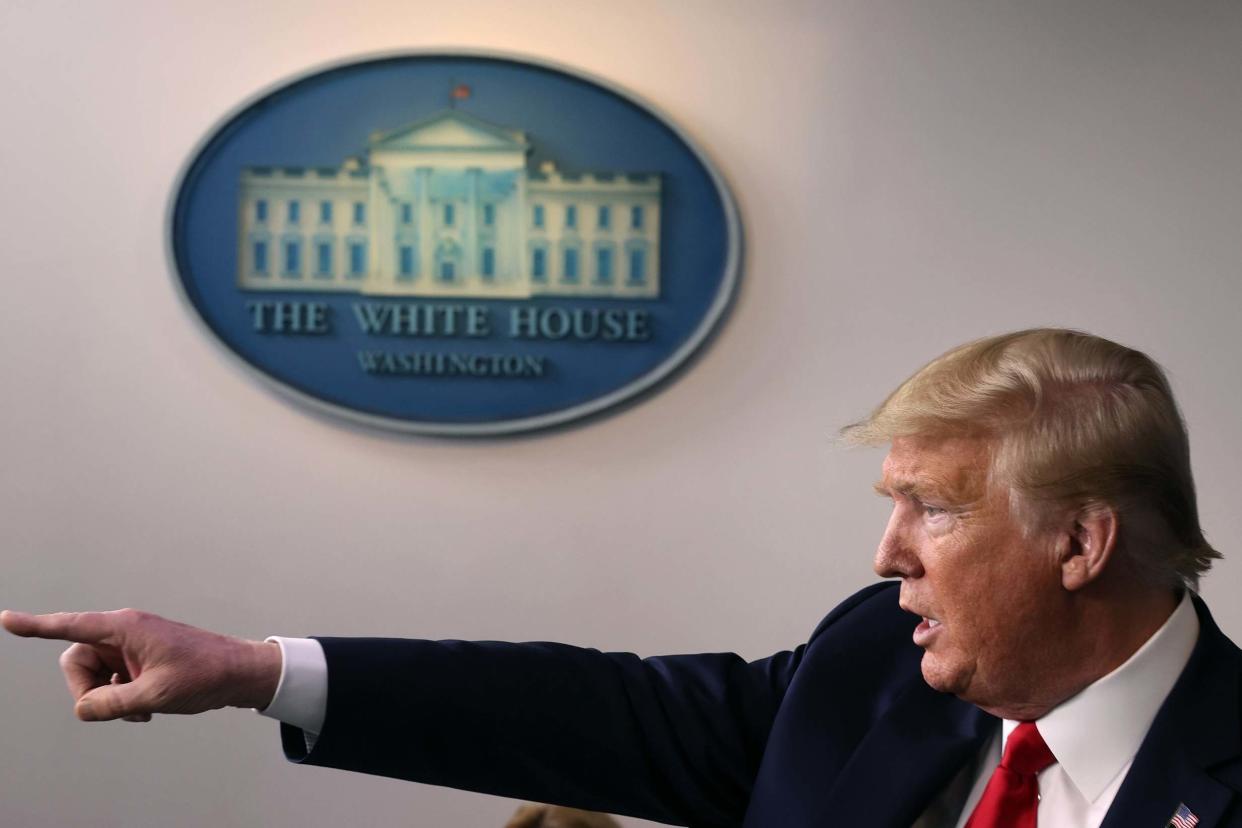Like after 9/11, governments could use coronavirus to permanently roll back our civil liberties

With over a million confirmed cases and a death toll quickly approaching 100,000, Covid-19 is the worst pandemic in modern history by many orders of magnitude. That governments were unprepared to deal with a global pandemic is at this point obvious. What is worse is that the establishment of effective testing and containment policies at the onset of the outbreak could have mitigated the spread of the virus. Because those in charge failed to bring in any of these strategies, we are now seeing a worrying trend: policies that trample on human rights and civil liberties with no clear benefit to our health or safety.
Broad and undefined emergency powers are already being invoked — in both democracies and dictatorships. Hungary’s Prime Minister Viktor Orban was granted sweeping new powers to combat the pandemic that are unlimited in scope and effectively turn Hungary’s democracy into a dictatorship. China, Thailand, Egypt, Iran and other countries continue to arrest or expel anyone who criticizes those states’ response to coronavirus.
The US Department of Justice is considering charging anyone who intentionally spreads the virus under federal terrorism laws for spreading a “biological agent”. Israel is tapping into previously undisclosed smartphone data, gathered for counterterrorism efforts, to combat the pandemic. States in Europe, anticipating that measures against Covid-19 will violate their obligations under pan-European human rights treaties, are filing official notices of derogation.
A chilling example of the effects of emergency powers on privacy rights and civil liberties happened during the aftermath of the September 11, 2001 attacks and the resulting “war on terror”, in which successive US presidents pushed the limits of executive power. As part of an effort to protect Americans from security threats abroad, US government officials justified the use of torture in interrogation, broad state surveillance tactics and unconstitutional military strikes, without the oversight of Congress. While the more controversial parts of those programs were eventually dismantled, some remain in place, with no clear end date or target.
Those measures — passed under the guise of emergency — reshaped the world, with lasting impacts on how we communicate and the privacy we expect, as well as curbs on the freedoms of certain groups of people. The post-September 11 response has had far-reaching consequences for our politics by emboldening a cohort of populist leaders across the globe, who ride to election victories by playing to nationalist and xenophobic sentiments and warning their populations of the perils brought by outsiders. Covid-19 provides yet another emergency situation in which a climate of fear can lead to suspension of freedoms with little scrutiny — but this time we should heed the lessons of the past.
First, any restriction on rights should have a clear sunset clause, providing that the restriction is only a temporary measure to combat the virus, and not indefinite. For example, the move to grant Hungary’s Viktor Orban sweeping powers has no end date — thus raising concerns about the purpose of such measures when Hungary is currently less affected than other regions of the world and in light of Orban’s general penchant for authoritarianism.
Second, measures to combat the virus should be proportional to the aim and narrowly tailored to reach that outcome. In the case of the US Department of Justice debate as to whether federal terrorism laws can be applied to those who intentionally spread the virus, while that could act as a potent tool for charging those who actually seek to weaponize the virus as a biological agent, there is the potential for misapplication to lower-level offenders who cough in the wrong direction or bluff about their coronavirus-positive status. The application of laws should be carefully defined so that prosecutors do not extend the boundaries of these charges in a way that over-criminalizes.
Third, countries should stop arresting and silencing whistleblowers and critics of a government’s Covid-19 response. Not only does this infringe on freedom of expression and the public’s right to know what their governments are doing to combat the virus, it is also unhelpful from a public health perspective. Prisons, jails and places of detention around the world are already overcrowded, unsanitary and at risk of being “superspreaders” of the virus — there is no need to add to an at-risk carceral population, particularly for non-violent offenses.
Fourth, the collectors of big data should be more open and transparent with users whose data is being collected. Proposals about sharing a person’s coronavirus status with those around them with the aid of smartphone data should bring into clear focus, for everyone, just what privacy issues are at stake with big tech’s data collection practices.
And finally, a plan of action should be put in place for how to move to an online voting system for the US elections in November 2020, and in other critical election spots around the world. Bolivia already had to delay its elections, which were key to repairing its democracy in a transitional period following former President Evo Morales’s departure, due to a mandatory quarantine to slow the spread of Covid-19. Other countries, including the US, should take note and not find themselves flat-footed on election day.
A lack of preparedness is what led to the current scale of this global crisis — our rights and democracies should not suffer as a result.
Gissou Nia is a human rights lawyer and nonresident fellow at the Atlantic Council
Read more
Pelosi wants earmark for minorities in next coronavirus stimulus deal
White House blocks experts from TV appearances
Police officers put at risk by PPE 'postcode lottery'
Fauci says US may begin to reopen by summer
Outrage in Italy after German paper said ‘mafia waiting for EU money’

